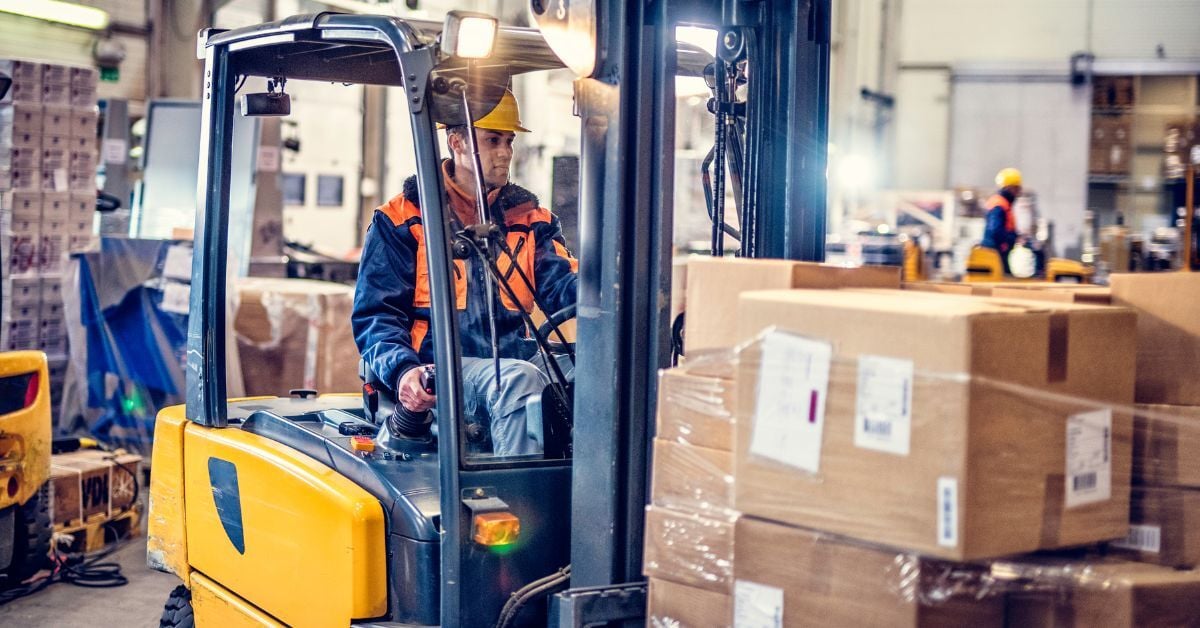Case Study
Reducing forklift collisions through collaborative learning

At a manufacturing facility in South East Queensland, the HSE Manager noticed minor forklift collisions were recurring frequently in the warehouse. Although none of these incidents had resulted in serious harm, the pattern suggested underlying risks in day-to-day operations.
Rather than treating these events purely as individual errors, the organisation decided to explore the issue through a Learning Team.
They brought warehouse workers together in a Learning Team focused on Warehouse Traffic Improvements, using normal work as the starting point for identifying practical, system-level improvements.
The first session: Learning about the work
The first session centred on understanding work as it is really done – looking holistically at the tasks of forklift drivers, the challenges they face, and the adaptations they make to get work done safely and efficiently.
Team members felt comfortable speaking openly about experiences, concerns, and challenges. This was notably due to their rapport with the Learning Team facilitator, who was well-known and trusted by the group, and had been actively applying the Human and Organisational Performance (HOP) principles in their day-to-day work. This trust meant that the session did not become a compliance exercise or fault-finding investigation. Instead, it was a genuine conversation about how work happens – where team members could speak honestly without fear of punishment or blame.
Importantly, the support of both the immediate Supervisor and Manager reinforced that this was a safe space for contribution and improvement. The workers understood that the purpose was to learn, not to punish, and so they were willing to share incidents that might otherwise have gone unreported.
What the Learning Session uncovered
The first session revealed that a number of forklift interactions and near misses had occurred in the warehouse over the past year, and that these were more routine occurrences than isolated incidents. The types of incidents included:
- Minor scrapes against stationary objects
- Pushing pallets too far into the racking, resulting in damage to the pallets, or wall, behind the pallet space
- Damage to emergency exit signs when lifting loads
Designing worker-led solutions
At the end of the first session, team members returned to work and were asked to reflect on what they had discussed, as well as think about potential solutions. The next day, the group came together for a follow-up session to brainstorm and prioritise improvements. Purposefully allowing time to pause – in this case, overnight – helped transition from learning mode into ideation.
During this collaborative discussion, the team suggested a number of simple yet highly effective changes:
- Installing a small barrier along the staging area wall to prevent forklifts from being able to make contact with emergency signs when lifting loads
- Utilising spotters when moving loads in/out of high racks
- Redesigning storage and staging areas to reduce congestion
- Encouraging improved communication amongst the team
While minor in nature, these adjustments highlighted that frontline workers who are closest to the work are often best placed to design effective, practical improvements. Their suggestions represented thoughtful changes that addressed real risks in the system.
Outcomes
The interventions developed from the Learning Team had a tangible effect. Forklift collisions and near misses were significantly reduced, and perhaps more importantly, workers felt ownership of the changes. Their ideas were taken seriously, implemented promptly, and visibly improved the workplace design.
This outcome reflects one of the core aims of Learning Teams – shifting from problem-solving that relies on top-down control to solutions co-created with the people who do the work. By valuing their knowledge and engaging them as partners in improvement, the organisation not only reduced risk but also built more trust and engagement in making work safer.
Since the Learning Team was conducted, there have been no further forklift incidents from this warehouse team. This notable improvement highlights how small, thoughtful changes, informed by those closest to the work, can make a big difference. When workers are engaged, listened to, and supported, the path to safer, more effective operations becomes clearer.












